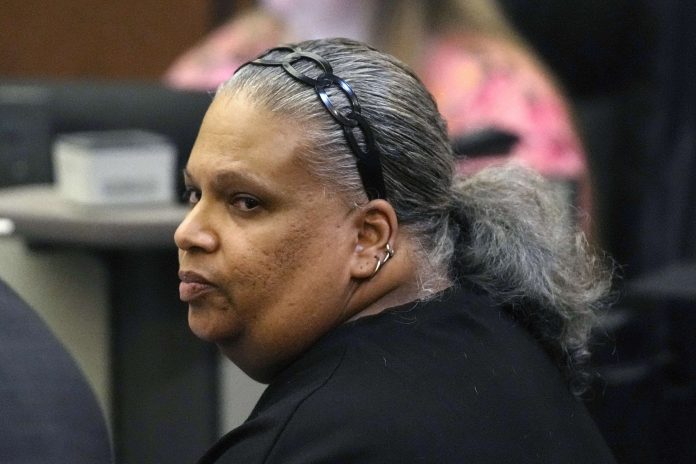
By Jacques Billeaud and Anita Snow
Associated Press
PHOENIX (AP) — The backup Uber driver for a self-driving vehicle that killed a pedestrian in suburban Phoenix in 2018 pleaded guilty Friday to endangerment in the first fatal collision involving a fully autonomous car.
Maricopa County Superior Court Judge David Garbarino, who accepted the plea agreement, sentenced Rafaela Vasquez, 49, to three years of supervised probation for the crash that killed 49-year-old Elaine Herzberg. Vasquez told police that Herzberg “came out of nowhere” and that she didn’t see Herzberg before the March 18, 2018, collision on a darkened Tempe street.
Vasquez had been charged with negligent homicide, a felony. She pleaded guilty to an undesignated felony, meaning it could be reclassified as a misdemeanor if she completes probation.
Authorities say Vasquez was streaming the television show “The Voice” on a phone and looking down in the moments before Uber’s Volvo XC-90 SUV struck Herzberg, who was crossing with her bicycle.
Vasquez’s attorneys said she was was looking at a messaging program used by Uber employees on a work cellphone that was on her right knee. They said the TV show was playing on her personal cellphone, which was on the passenger seat.
Defense attorney Albert Jaynes Morrison told Garbarino that Uber should share some blame for the collision as he asked the judge to sentence Vasquez to six months of unsupervised probation.
“There were steps that Uber failed to take,” he said. By putting Vasquez in the vehicle without a second employee, he said. “It was not a question of if but when it was going to happen.”
Prosecutors previously declined to file criminal charges against Uber, as a corporation. The National Transportation Safety Board concluded Vasquez’s failure to monitor the road was the main cause of the crash.
“The defendant had one job and one job only,” prosecutor Tiffany Brady told the judge. “And that was to keep her eyes in the road.”
Maricopa County Attorney Rachel Mitchell said in a statement after the hearing that her office believes the sentence was appropriate “based on the mitigating and aggravating factors.”
The contributing factors cited by the NTSB included Uber’s inadequate safety procedures and ineffective oversight of its drivers, Herzberg’s decision to cross the street outside of a crosswalk and the Arizona Department of Transportation’s insufficient oversight of autonomous vehicle testing.
The board also concluded Uber’s deactivation of its automatic emergency braking system increased the risks associated with testing automated vehicles on public roads. Instead of the system, Uber relied on the human backup driver to intervene.



















